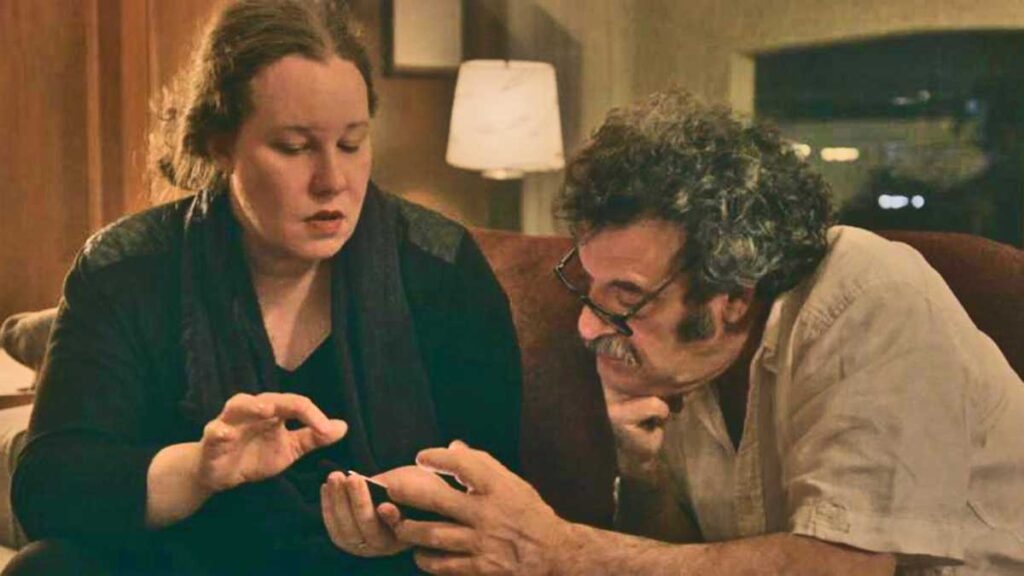The genial documentary, “The Sound of Identity,” available June 1 on digital and on demand, profiles Lucia Lucas, a transgender opera singer who has been hired to perform the title role in Mozart’s “Don Giovanni.” It is the first time a trans performer will sing the role, and the casting by Tobias Picker, the out gay composer and artistic director of the Tulsa Opera Company, is historic. However, it may also be seen as a canny stunt by some, and Picker wonders if his decision will result in him being asked to resign.
Yet, as the film shows, Lucas’ casting also makes complete sense. The character of Don Giovanni is — several members of the company observe — pure toxic masculinity. He is a master of deception and disguise who shifts genders to manipulate others. It may be a “radical break with tradition,” as one interviewee says regarding Lucas singing the role, but another explains that there have always been “trouser roles” in opera, denoting parts are sung by members of the opposite sex.
“The Sound of Identity” reveals how Lucas, who has been performing professionally for the last 10 years, prepares for this, her American debut. She feels pressure to sell tickets and is seen making appearances at LGBT community events, meeting with various boards, and even handing out flyers in a public park, hoping to generate interest in opera in general and herself in particular.
This work causes strain on her voice. She often performs at these appearances and talks over the background noise. In addition, her efforts to drum up interest takes away from preparing and getting into character, which is a concern for Denni Sayers, the production’s director.
Lucas is seen enjoying some down time, chatting with her wife, or playing video games. She explains that Nintendo gives her focus and keeps her brain sharp, revealing that she got hooked on playing video games after her parents got divorced. Lucas also talks candidly about her family, and how she handled her coming out, telling them she can live with or without them. She further expresses her concerns about her relationship with her father, who remarried and had another family. That her dad and one of his children are planning to attend Lucas’ performance gives her some anxiety and adds to the documentary’s drama.

“The Sound of Identity” provides a strong spotlight on Lucas, who talks about her struggles coming out and forging a career where her identity may limit her opportunities. But of equal interest is Picker’s backstory. He reveals (after losing to Lucas at a video game) that he grew up with Tourette’s. When he talked with a therapist, he eventually came to embrace his sexuality, not hide it. He found a partner and yet resisted marriage until legal rights, like health benefits, became important. Then he and his husband were wed by none other than opera buff Ruth Bader Ginsburg. His chatty scenes with Lucas are among the film’s best.
Other performers of the company, including Anthony Clark Evans, Hidenori Inoue, and Michael St. Peter, weigh in with their respect and appreciation for Lucas and the production. The family environment of the opera company is affectionate, and the documentary features as many scenes that show the work as there are scenes of people talking about the work. The rehearsals and performances are enjoyable to watch. Revealing the behind-the-scenes efforts of the costume designers illustrates the amount of energy (and money) needed to create such an elaborate production.
“The Sound of Identity” addresses the fear the Tulsa Opera has about finding an audience and make money on “Don Giovanni,” indicating that support for the arts, especially opera, is tricky. There are discussions of trying to appeal to a younger and LGBT crowd and the issue of race is raised when it is noted that only two of the many Tulsa Opera board members are people of color.
What is not a concern, apparently, is any apparent transphobia regarding Lucas’ casting. This is obviously a good thing — her trans identity should not matter if she can sing the role — but given that the film emphasizes the “risk” of this casting, audiences, and that Oklahoma is a red state, the film prepares for a backlash that never really happens.
Much of what Lucas says in the film repeats her finding value in making human connections, be it with family, community, fellow gamers, and most importantly, audiences. Although Lucas does not provide any great insight when she insists there is nothing like a live performance “The Sound of Identity” shows the power when she does this.
This documentary is effective for showcasing positive trans representation, but it is Lucas’ singing, not just her attitude, that really impresses.
